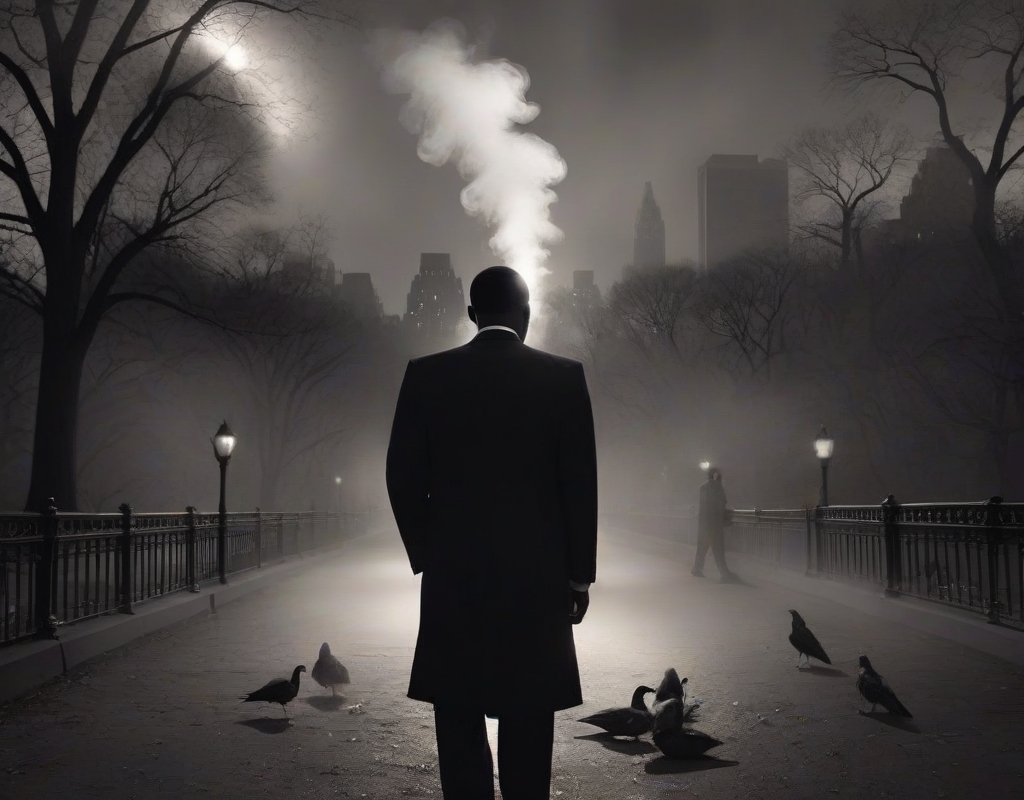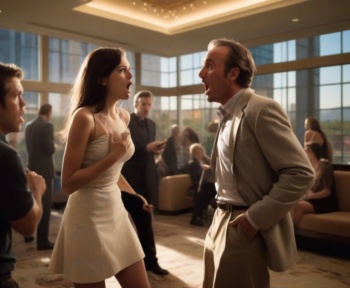In an industry as dynamic and cutthroat as hip-hop, where power often overshadows principles, few stories have stirred as much controversy as the ritual Sean “Diddy” Combs is alleged to have partaken in during one of his most vulnerable moments. Known for his ability to reshape the music landscape, Diddy’s actions have often placed him at the center of media scrutiny, and this event was no exception. The episode is chronicled in chilling detail in the Hulu documentary “The Honorable Shyne,” presenting a tale both surreal and foreboding which unfolded just before a crucial trial verdict in Diddy’s life.
This incident refers back to the chaos of a January 1999 night in Manhattan’s Club New York, where a shooting involving Diddy and his then-protégé Shyne Barrow left three bystanders wounded, an event that generated mass media coverage and had severe legal repercussions. Both faced significant charges, including weapons possession and bribery, under the glaring spotlight of public and media scrutiny.
Gene Deal, Diddy’s former bodyguard, shared a disconcerting narrative of the night before the verdict. He described a covert ritual in Central Park, where Diddy, accompanied by an unidentified individual with a Bible, supposedly released a white bird after some ceremonial gestures, only for the bird to fall dead to the ground in a cloud of smoke. Such an account, though unverified, casts a somber and mystic hue over the ensuing day’s court decision.
The implications of such a ritual, whether true or fabricated, resonate deeply, suggesting Diddy’s desperation and perhaps a belief in higher forces that could sway judicial outcomes. Just hours after this alleged incident, Diddy was acquitted of all charges, dodging up to 15 years behind bars—a stark contrast to Shyne’s fate, who was convicted and sentenced to a decade in prison.
Post-imprisonment, Shyne has taken a bold path of resilience and renewal. From the depths of a prison cell to the halls of political leadership in Belize, his transformation is not just a personal victory but a public statement. Shyne has openly criticized Diddy, accusing him of prioritizing self-preservation over justice. Despite their strained relations, Shyne claims to have forgiven Diddy, choosing personal growth and forward-looking ambitions over past grievances.
The narrative of these events, as unpacked in “The Honorable Shyne,” has evoked mixed reactions. Directed to give a balanced view, the documentary delves into the complexities and personal costs of the trial. It enriches the public discourse with diverse viewpoints from legal authorities, industry insiders, and those directly involved, offering a multifaceted exploration of the case. Some viewers have criticized the documentary for revisiting a painful chapter in hip-hop history, while others affirm its necessity in dissecting themes of loyalty, morality, and the pursuit of justice.
Cultural analysts have pored over the ritualistic aspect of the story, perceiving it as a reflection of obscure practices sometimes rumored in elite circles. The possibility of Diddy engaging in such a desperate act illustrates the significant pressures and fears associated with high stakes environments such as his. Sociologist Jim Clark suggests that such behaviors mirror a broader psychological recourse to supernatural elements amidst crises, common among celebrities facing potentially dire consequences.
Legal experts also weigh in on the implications of the trial and its associated spectacles. They argue that the theatrical elements surrounding high-profile cases can sometimes eclipse the actual legal procedures, influencing public perception and possibly impacting the outcomes of such trials, as noted by Marie Colderidge in her commentary for the New York Times.
The controversies enveloping Diddy and Shyne raise ongoing debates about integrity within the entertainment sector and the lengths to which industry giants might go to protect their status and fortunes. These narratives of sacrifice and survival have become enduring elements in the lore of the music world, painting a complex picture of betrayal, redemption, and ultimately forgiveness.
By examining these layers, the story of Diddy’s alleged ritual and the subsequent legal and personal battles between him and Shyne offers more than just a glimpse into their lives; it underscores critical ethical, cultural, and human questions within the broader narrative of celebrity and power in America.
This continuing saga—marked by legal drama, personal betrayals, and media frenzy—reflects enduring truths about the intersections of fame, justice, and the human spirit. It remains a poignant story that resonates far beyond the confines of the courtroom, continuing to captivate and provoke thought on the real-life implications of fame, power, and redemption in the public eye.




